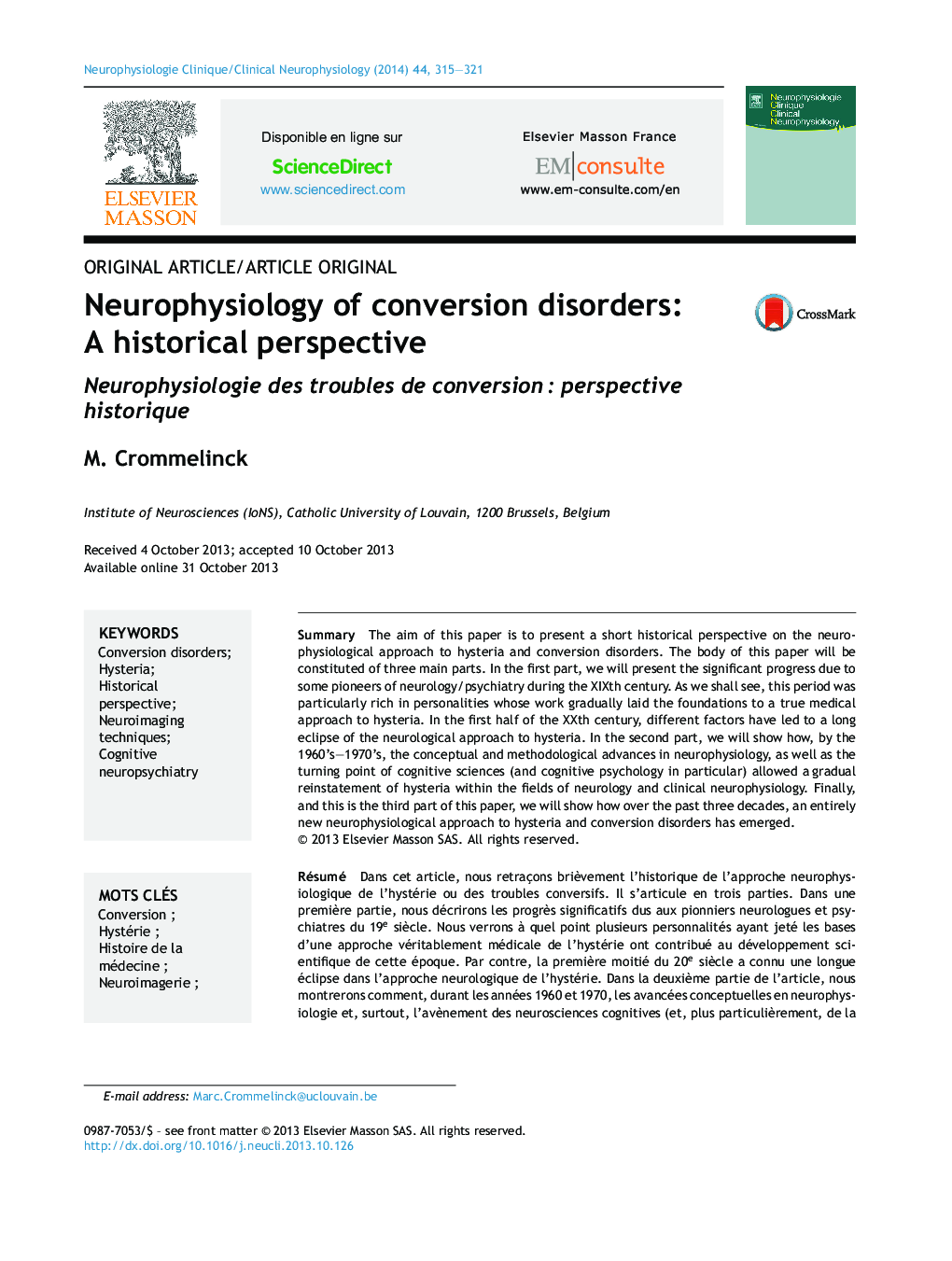| Article ID | Journal | Published Year | Pages | File Type |
|---|---|---|---|---|
| 3082233 | Neurophysiologie Clinique/Clinical Neurophysiology | 2014 | 7 Pages |
SummaryThe aim of this paper is to present a short historical perspective on the neurophysiological approach to hysteria and conversion disorders. The body of this paper will be constituted of three main parts. In the first part, we will present the significant progress due to some pioneers of neurology/psychiatry during the XIXth century. As we shall see, this period was particularly rich in personalities whose work gradually laid the foundations to a true medical approach to hysteria. In the first half of the XXth century, different factors have led to a long eclipse of the neurological approach to hysteria. In the second part, we will show how, by the 1960's–1970's, the conceptual and methodological advances in neurophysiology, as well as the turning point of cognitive sciences (and cognitive psychology in particular) allowed a gradual reinstatement of hysteria within the fields of neurology and clinical neurophysiology. Finally, and this is the third part of this paper, we will show how over the past three decades, an entirely new neurophysiological approach to hysteria and conversion disorders has emerged.
RésuméDans cet article, nous retraçons brièvement l’historique de l’approche neurophysiologique de l’hystérie ou des troubles conversifs. Il s’articule en trois parties. Dans une première partie, nous décrirons les progrès significatifs dus aux pionniers neurologues et psychiatres du 19e siècle. Nous verrons à quel point plusieurs personnalités ayant jeté les bases d’une approche véritablement médicale de l’hystérie ont contribué au développement scientifique de cette époque. Par contre, la première moitié du 20e siècle a connu une longue éclipse dans l’approche neurologique de l’hystérie. Dans la deuxième partie de l’article, nous montrerons comment, durant les années 1960 et 1970, les avancées conceptuelles en neurophysiologie et, surtout, l’avènement des neurosciences cognitives (et, plus particulièrement, de la neuropsychologie cognitive) ont permis de recadrer l’hystérie dans le champ de la neurologie et de la neurophysiologie clinique. Enfin, nous montrerons dans la troisième partie de cet article comment les 30 dernières années virent se développer une approche totalement nouvelle de l’hystérie et des troubles conversifs.
